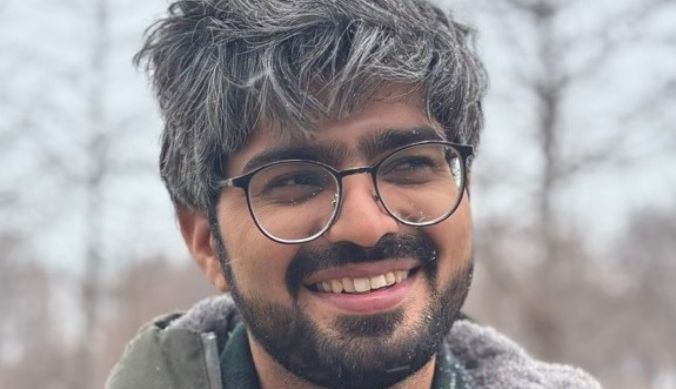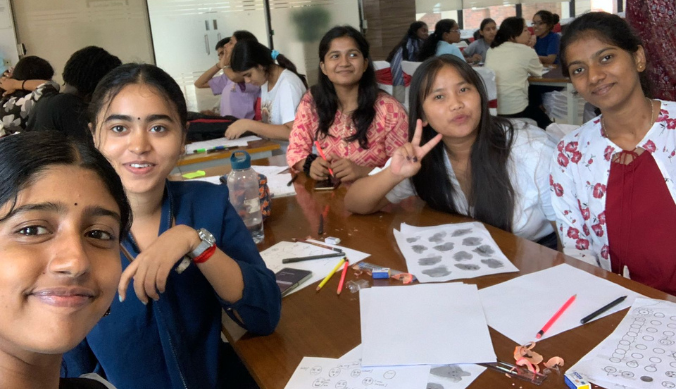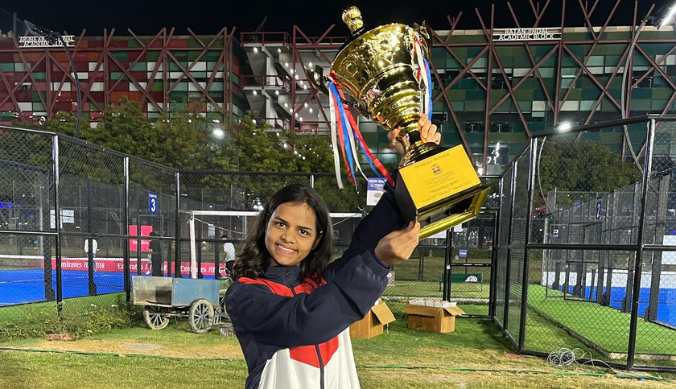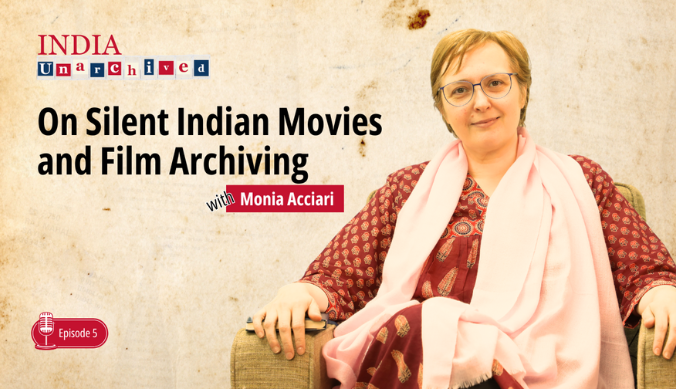Sanah Agrawal on Her Shooting Journey and Reconnecting with the Sport at Ashoka
A walk through Sanah Agrawal’s 10-year journey from taking up shooting as a hobby to leading Ashoka University’s shooting team.
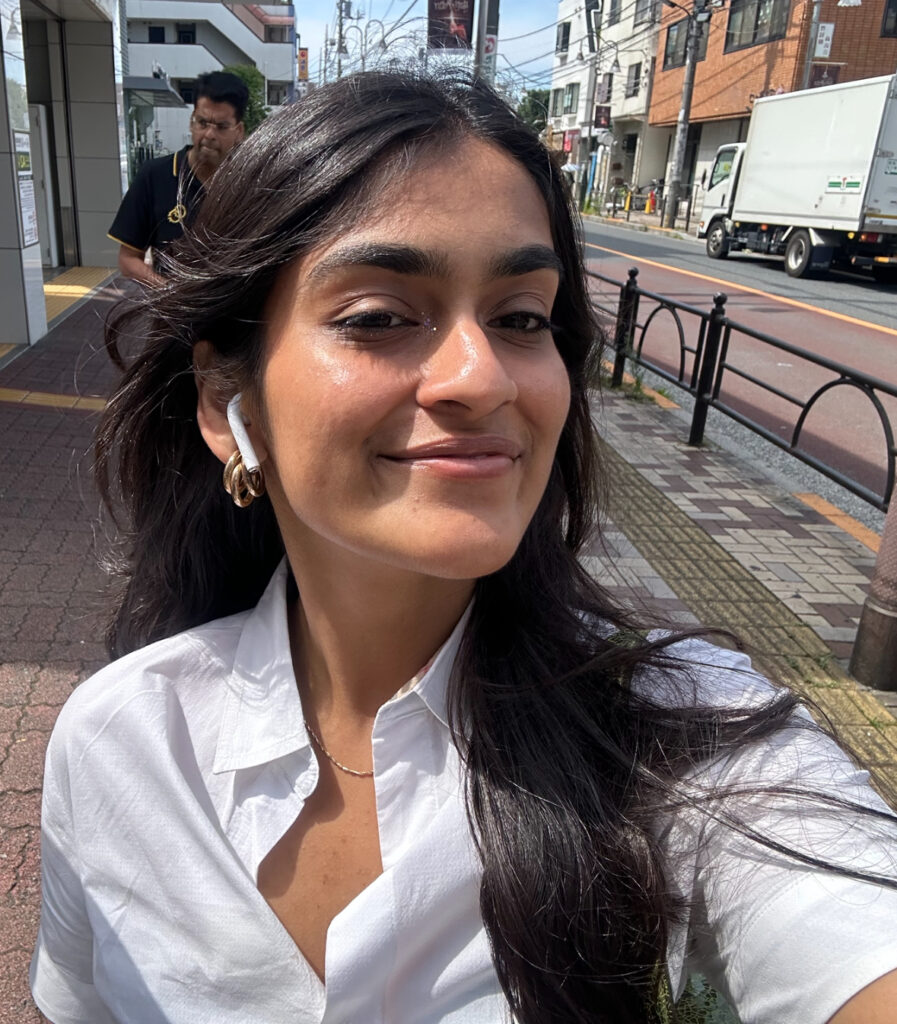
Can you walk us through how you discovered your passion for shooting and how your journey in the sport began?
I’m Sanah Agrawal, currently an ASP ’25. I graduated with a major in History and International Relations, and I’m writing a thesis in IR while pursuing a minor in Psychology. My journey with shooting began about 10 years ago. At the time, my parents and I had almost given up on finding a sport I would stick with. In my school, playing a sport every day was compulsory, so one hot evening, I decided to try shooting since it was one of the few indoor sports with fans. As they say, the rest is history—at least for a while. I connected with the sport in a way I never thought I would with any other sport. For the longest time, I didn’t even think about scores or performance. It was just something I enjoyed doing for myself. Like any sport, it gave me discipline and stability, becoming an anchor in my life. Shooting is something deeply personal to me, almost introspective, teaching me a lot about myself.
I didn’t take it seriously until 10th grade, when I qualified for nationals and started competing in the Indian team trials, eventually participating in the World Championships. It wasn’t until I was on the flight to the Czech Republic that I realized I needed to focus on this professionally. However, life intervened—COVID struck, my practices took a hit, my performance declined, and I struggled with the sport I had once excelled at. Shooting started to feel more like a burden, and it took me a while to reconnect with it after the pandemic.
How has your experience at Ashoka influenced your approach to shooting, both as a hobby and as part of a community?
After the COVID pandemic, I forced myself back into the sport, but the connection wasn’t the same. This is where Ashoka played a crucial role. The shooting range being right on campus meant I didn’t have to put in much effort—it became a regular part of my day, like before. Being at Ashoka helped me reconnect with the sport on more of a hobbyist level, and I rediscovered my love for it.
A big part of this reconnection was the sense of community we built here. Being part of a team, playing with people who care about shooting as much as I do, made me realize how much I truly love the sport. It helped me gain perspective on why I shoot and allowed me to rediscover the part of myself I thought I had lost during the pandemic.
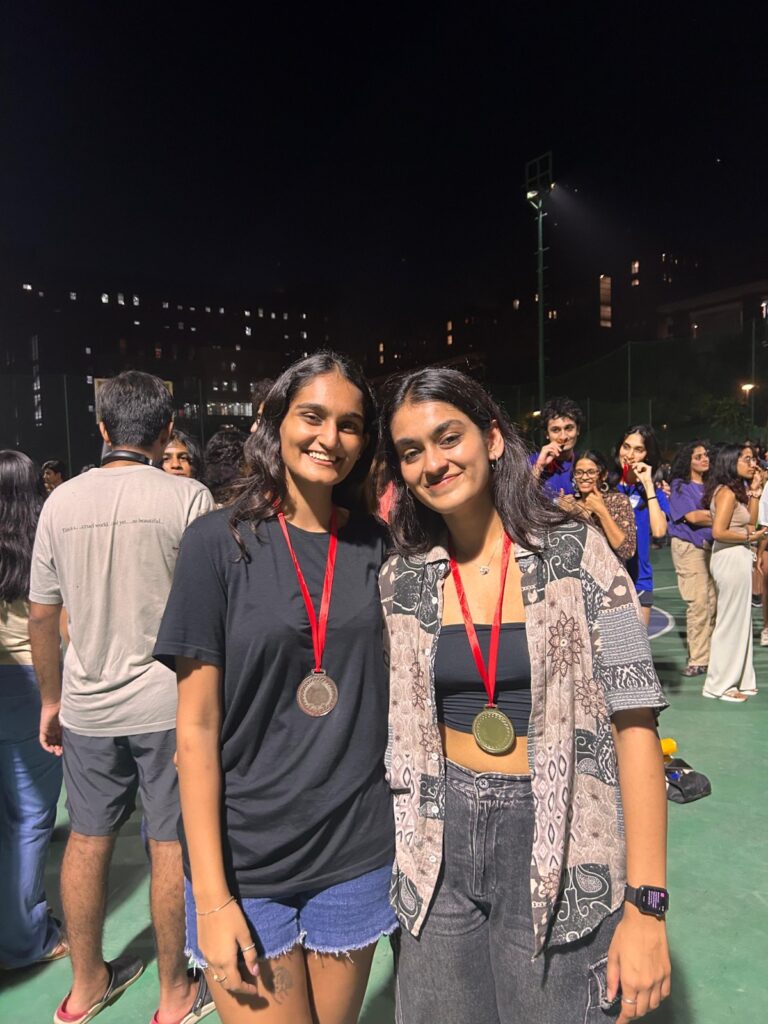
What does leading the shooting squad mean to you?
To me, being a captain means sharing a part of myself that I love and enjoy with others, fostering a community, and simply playing sports. Many people still think sports are for men, and if my leadership can challenge that notion even slightly, it feels great. When I see women coming to the range, seeing me there, and realizing they too can pick up a rifle and hold it for hours, that’s empowering.
For me, leadership isn’t about making decisions or enforcing rules. It’s about collectively deciding how we want to manage our space, respecting each other, and building friendships. Being a captain means creating a community of like-minded people who care about sports and shooting as much as I do
With both academics and sports being equally demanding, how do you strike a balance between the two and manage your time effectively?
Balancing academics and sports is something you never fully figure out—the scales are always tipping more toward one side or the other. For me, compartmentalizing works best. When I’m in an academic space, like the library, I don’t think about shooting. When I’m at the range or working on something sports-related, I don’t think about academics. Having designated spaces and time for each activity helps a lot.
I’m also fortunate to have a great team. They’re understanding, they step up when needed, and they help me delegate responsibilities when something else requires more of my attention.
Looking ahead, what are your goals for both yourself and for the Ashoka shooting team?
For the longest time, Ashoka didn’t have a shooting team, but last year we finally built one. Personally, my goal is to always remember why I shoot—it’s for me and no one else. Hopefully, one day, I can revisit the professional dreams I left behind.
For the team at Ashoka, my aim is to continue growing the community. Of course, I want us to compete and bring laurels to the institute, but more importantly, I want more people to try shooting and feel as passionate about it as we do. I also hope to help more people, both on and off the team, go professional and pursue shooting beyond Ashoka, not just as a hobby. Ultimately, I’d love for us to compete in more recognized competitions and, hopefully, one day win the All India University Championship.
Study at Ashoka









